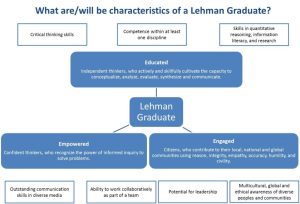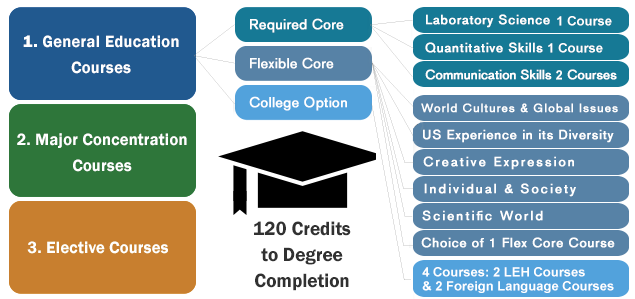1 LEH 250
Purpose
LEH 250 is an important class. The transition into college is hard academically, socially, and in terms of changing relationships with family and friends. Colleges work to make this transition successful, and a first-year course or seminar is often part of that process.
Goals
Lehman has declared the goal that:
Upon graduation from Lehman College, students will expand the legacy of Herbert H. Lehman as an educated citizen devoted to lifelong scholarship, to honesty and integrity, including the strength to follow one’s conscience, to civic investment, based on the belief that everyone has a duty to help others, to collaboration and empathy with others, and to a willingness to address complex problems.
This is summarized in three terms: Educated, Engaged, Empowered. LEH 250 is designed as the first step in what will be a years-long process of becoming a Lehman graduate embodying those characteristics.

In LEH 250, we try to embody all of these and encourage students to see this big picture as a guiding framework. More detail about what this means is provided on the Lehman Web site.
Through the course structure students’ initial steps on this path are developed.
The shared learning outcomes for LEH 250 are laid out below.
Learning Objectives
By the end of the course you will (at a level appropriate to completing an introductory course):
- Employ the methods of critical inquiry and analysis in at least one of the following disciplinary areas: social sciences, life and physical sciences, humanities, or applied perspectives.
- Demonstrate critical thinking and problem-solving skills, including through inquiry, analysis, and reading.
- Communicate using writing, oral presentation, or other diverse media (e.g., visual representation, performance, or design).
- Transition to college and to campus life at Lehman College by being able to:
- Identify the mission and values of Lehman College and the existing Lehman services supporting that mission (e.g., Academic Advisement, Campus Life, Career Services, Counseling Center, Instructional Support Services, Office of Prestigious Awards, and Student Disability Services).
- Identify the requirements of college degree curriculum.
- Use existing technological tools (e.g., Brightspace, CUNYFirst, DegreeWorks, Lehman360, and Library resources).
- Examine the career exploration process in relation to how their own skills and interests match a chosen major and career path.
You may want to add to or modify the outcomes, particularly those related to your disciplinary focus.
It’s important to also understand that this is not a writing intensive course. Almost everyone taking this class is also taking a composition class in which they are doing a substantial amount of writing. In fact, the concept of a two-course LEH 250+ English Composition learning community means that, if you and the English faculty wish to, you can collaborate. Therefore, while students will certainly write in your course, there is not an expected minimum number of pages or a revision process. Instead, oral communication should be a standard feature of LEH courses since there is no guarantee that this institutional learning outcome will be covered in other courses.
General Education at Lehman
LEH 250 is part of the general education program at Lehman, which, in turn, is part of the Pathways general education curriculum that is employed throughout CUNY. LEH 250 is part of the College Option. It is important for students to understand how the courses they are taking fit into this overall model. This is part of exploring the liberal arts, and is a chance to talk about how college is not just a random collection of courses, but instead a curriculum that has been thought about and developed over a very long time. It is also why college is different from a trade school or certificate program. It is crucial for students to understand this difference.

LEH 250 is part of the College Option, which requires two LEH courses.
In addition, most first-year students are taking a combination of Flexible Core classes in various categories and the required core Communication Skills (which at Lehman means ENG-111 and ENG-121) and Quantitative Skills (either in the first or second semester, usually quantitative reasoning, statistics, or precalculus, although there are other options). Some students are also taking their required lab science during the first or second semester. Usually they are assigned to a specific block of classes based on their anticipated major. However, the largest group of students are undecided, and the first semester is a crucial step in exploring options and finding their interests.